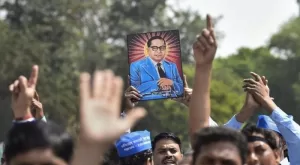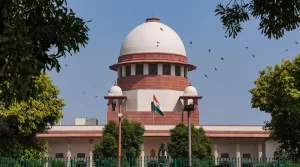On 31 July, Class XI student Shreya Tiwari at Children’s Girls College in Azamgarh allegedly committed suicide by jumping from the 3rd floor of the school building. The college principal, Sonam Mishra, and the class-teacher, Abhishek Rai, have been arrested. The private schools across Uttar Pradesh observed a day long strike by keeping the schools closed and a local parents’ association called upon the parents to not send their children another day as a protest against tyranny of private schools. In U.P. Legislative Council representative of teachers’ community demanded the immediate release of teacher and principal.
According to the mother Neetu Tiwari, when she reached the school along with her husband and younger son, she found the body in mysterious circumstances. Her clothes were torn from various places, there was blood all over two legs, two teeth were broken, eyes were open, the undergarment appeared to have been put on body after her death and the blood stains was washed away from the place where she was supposed to have fallen down. She believes that her daughter, who was aspiring to be an IPS officer, was strong enough that it would require more than one man to subdue her. Neetu thinks that even if Shreya was not sexually abused, she was definitely tortured inside the Principal’s room. Shreya was apparently inside the principal’s office for more than an hour according to informal information obtained from police after inspection of the cameras installed in school. The school authorities claim that a mobile phone and something ‘objectionable’ was found inside her bag. According to some students she was also taken around to different classrooms and humiliated by telling the students about what was found inside her bag. It was after the public humiliation that she could not probably bear and took a decision to end her life. Now whatever objectionable things may have been found in Shreya’s bag, who gives the right to school to humiliate her?
But coming to the main incident, irrespective of whether it was murder or a suicide, the school principal and teacher are guilty and were initially rightly arrested. It is preposterous that private schools demanded their release and our people’s representatives supported this demand in Legislative Council, instead of being sympathetic to the grieving parents. This is an indication of how increasingly politicians have now greater stakes in commercialization of our education and criminalization of our politics. Needless to say these are disturbing trends. On the third day after the matter was raised in Legislative Council, now the two accused have been released on bail and the police is claiming to investigate an angle of affair of the girl with some boy.
The private schools don’t want to be held accountable. They don’t want to honour the Right of Children to Free and Compulsory Education Act, 2009, and the special provision under section 12(1)(c) of this Act as part of which at least 25% children belonging to disadvantaged groups and weaker section can study for free in private schools. They simply ignore the provision.
Parents being fleeced by private schools and being taken for a ride is a common story. There have been many protests outside private schools against arbitrary increase in fees or some such issue. Neetu’s husband Ritu Raj Tiwari runs a small business and the family belongs to a lower middle class background. They were not in a position to pay Rs. 600 monthly bus fees for three months together after paying Rs. 2,500 as monthly fees for Shreya. Neetu repents that government schools are not of such a quality that any parent wanting to give good education to their children would risk sending their children to government ones. But if for some reason parents are not able to make full payments as demanded by private schools the children face the risk of being humiliated in the classroom which can be psychologically quite traumatic for them.
On the other hand whichever countries in the world have achieved the goal of universalization of education have done it through the Common School System, a recommendation of Kothari Commission which has been pending before the Parliament since 1968. Common School System implies government run, financed and regulated schools to which all children have access. All developed countries and many developing countries have implemented this idea. It is not clear how India aspires to be a developed country without implementing the CSS.
Private schools will never remain accountable to the government. If we have to prevent incident like the one described in this article, it is one more reason that now India must nationalize education and implement CSS.
Will it require all private schools to shut down? That is not necessary. If somebody wants to run a private school out of passion to provide good education they should be allowed. There are a number of creative private education initiatives around the country. But in such a case the condition should be that private schools will have to raise resources from elsewhere in order to make education free for the children. If schools are run for imparting education and not making profit then schools will become child friendly and remain accountable to parents and government. A lot of corruption in education department will also end with the ban on commercialization of education.
It is high time that policy makers in India consider implementing the tried and tested idea of CSS and contribute towards building an enlightened society rather then producing highly competitive but not always balanced individuals on one hand and large body of young who complete their education using unfair means and are not in a position to contribute to the society or economy in any meaningful manner.
(Sandeep Pandey is General Secretary of Socialist Party (India) and has been a member of Central Advisory Board on Education of the Union Government.)




